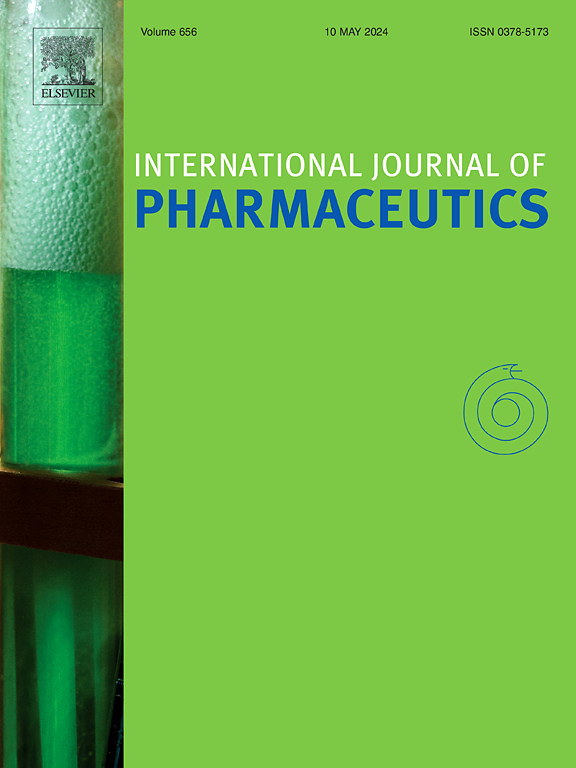Gastroretentive fibrous dosage forms for prolonged delivery of sparingly-soluble tyrosine kinase inhibitors. Part 2: Experimental validation of the models of expansion, post-expansion mechanical strength, and drug release
IF 5.3
2区 医学
Q1 PHARMACOLOGY & PHARMACY
引用次数: 0
Abstract
In Part 1, we have introduced expandable gastroretentive fibrous dosage forms for prolonged delivery of sparingly-soluble tyrosine kinase inhibitors. The expansion rate, post-expansion mechanical strength, and drug release rate were modeled for a dosage form containing 200 mg nilotinib. In the present part, the dosage form was prepared and tested in vitro to validate the models. Upon immersing in a dissolution fluid, the fibrous dosage form expanded at a constant rate to a normalized radial expansion of 0.5 by 4 hours, and then formed an expanded viscoelastic mass of high strength. The drug was released at a constant rate over a day. For comparison, a particle-filled gelatin capsule with the same amount of nilotinib disintegrated almost immediately, and released eighty percent of the drug content in just 10 minutes. The experimental data validate the theoretical models of Part 1 reasonably.

用于延长稀溶性酪氨酸激酶抑制剂给药时间的胃保留纤维剂型。第 2 部分:膨胀、膨胀后机械强度和药物释放模型的实验验证。
在第一部分中,我们介绍了用于稀释可溶性酪氨酸激酶抑制剂长效给药的可膨胀胃肠动力纤维剂型。我们对含有 200 毫克尼洛替尼的剂型的膨胀率、膨胀后机械强度和药物释放率进行了建模。在本部分中,制备了该剂型并进行了体外测试,以验证模型。在溶解液中浸泡 4 小时后,纤维状剂型以恒定速率膨胀至归一化径向膨胀率为 0.5,然后形成高强度的膨胀粘弹性团块。药物在一天内以恒定的速度释放。相比之下,含有相同剂量尼洛替尼的颗粒填充明胶胶囊几乎立即崩解,仅在 10 分钟内就释放了 80% 的药物成分。实验数据合理地验证了第一部分的理论模型。
本文章由计算机程序翻译,如有差异,请以英文原文为准。
求助全文
约1分钟内获得全文
求助全文
来源期刊
CiteScore
10.70
自引率
8.60%
发文量
951
审稿时长
72 days
期刊介绍:
The International Journal of Pharmaceutics is the third most cited journal in the "Pharmacy & Pharmacology" category out of 366 journals, being the true home for pharmaceutical scientists concerned with the physical, chemical and biological properties of devices and delivery systems for drugs, vaccines and biologicals, including their design, manufacture and evaluation. This includes evaluation of the properties of drugs, excipients such as surfactants and polymers and novel materials. The journal has special sections on pharmaceutical nanotechnology and personalized medicines, and publishes research papers, reviews, commentaries and letters to the editor as well as special issues.

 求助内容:
求助内容: 应助结果提醒方式:
应助结果提醒方式:


